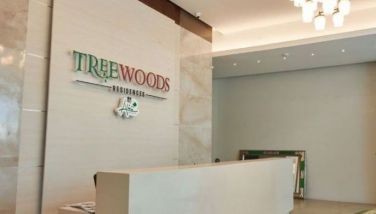BSP: Phl financial system inclusive
CEBU, Philippines – The Bangko Sentral ng Pilipinas has said the country’s financial system has slowly become inclusive over the years, crediting to the latest data on financial service access points.
In a statement sent to The FREEMAN, the central bank’s Inclusive Finance Advocacy Staff said it ensures the regulatory framework is responsive to the needs of the market and enables banks to offer financial products to traditionally marginalized sectors.
“To establish such an environment, the BSP carefully considers proportionality of its policies, by striking the right balance between prudential controls and flexibility for innovation,” read IFAS' statement.
It noted the number of banks and ATMs posts year-on-year expansion from end-June 2013 to end-June 2014.
Number of banks improved by close to six percent from 9,508 to 10,073; ATMs, meanwhile, expanded by 17 percent to 14,841 from 12,224 during the same period.
“The number of micro-banking offices that are less costly to put up than regular bank branches and cater to the banking needs of micro-finance clients, OFWs and their beneficiaries, has also increased,” the advocacy center added.
The central bank said the use of financial products and services has increased as seen in the year-on-year (end-June 2013 versus 2014) growth of bank deposits (24 percent) and loans (12 percent).
The Economic Intelligence Unit recognized the Philippine in its 2014 Global Microscope on the Enabling Environment for Financial Inclusion.
The EIU ranked the Philippines as top Asian country and third in the world that has the most conducive environment for financial inclusion.
BARRIERS
Physical barrier, IFAS cited, is the main factor that has contributed to the financial exclusion problem considering the archipelagic nature of the country.
Other reasons include the economic costs of accessing financial products and establishing banks in low income municipalities and lack of products that match the needs of the low-income segments.
The excluded citizens are often more vulnerable to making less informed financial decisions, which can result to financial loss and indebtedness.
Financially excluded people often resort to informal schemes and unregulated providers for their financial needs. These providers, which are not registered or accountable to any government agency, may be unsafe, unsound, or fraudulent, thus exposing the low-income, less-educated people to greater financial risks,” it added.
To address the said gaps, the BSP assured that its policy framework is cognizant of the mutually reinforcing objectives of its inclusion and consumer protection program.
This year, the central bank hopes the unbanked and underserved sectors will be increasingly targeted by financial firms.
- Latest


























